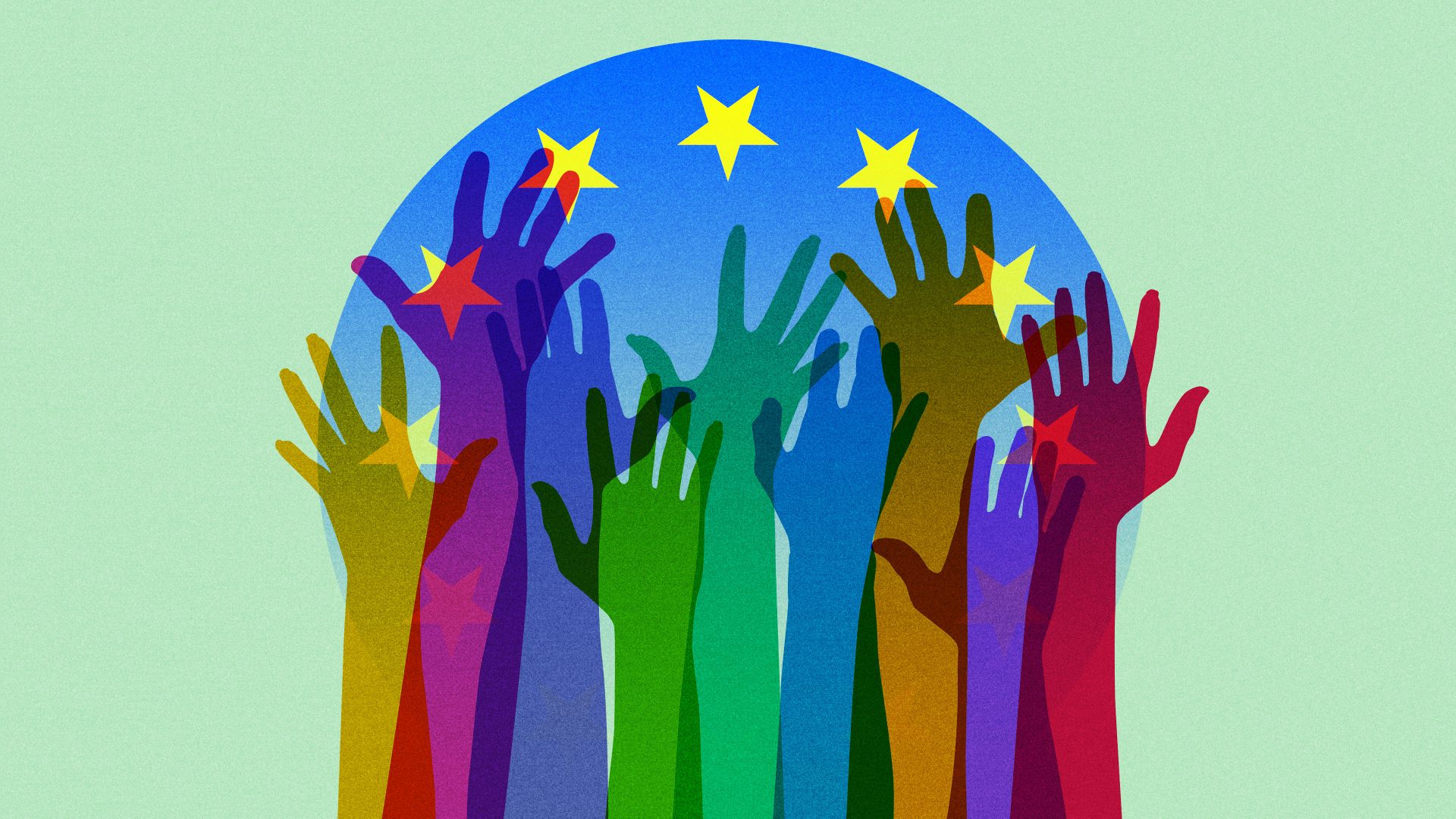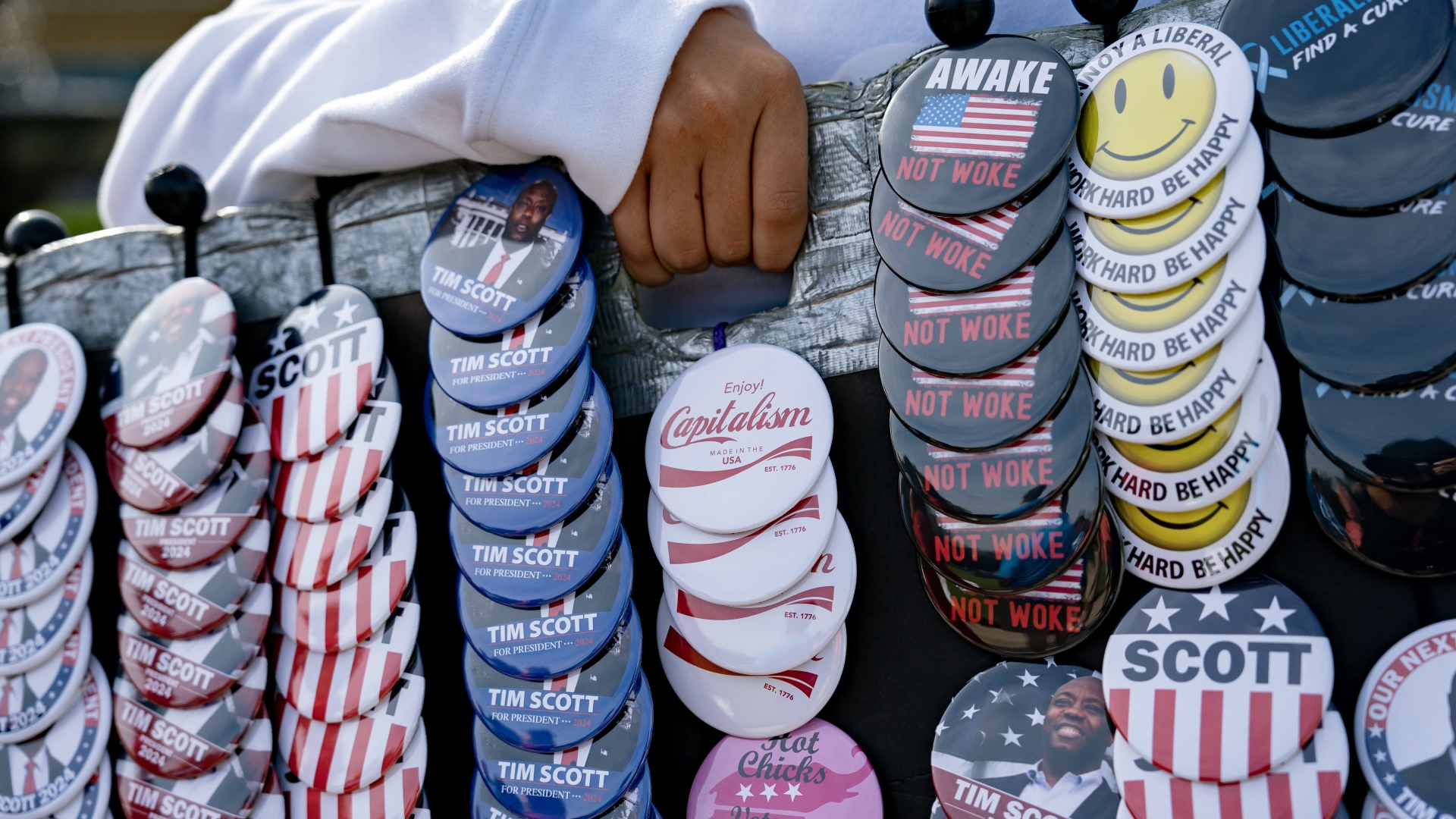To Hay-on-Wye, and a stunning first. For several weeks now, I have been asking people in every audience I address to raise a hand if they think Brexit is going well. And at the Hay Book Festival, the duck was finally broken. Among several hundred people, there he was, one hand, one man, still believing, out Farageing-Farage who, as we saw on the front page last week, has decided that the Brexit he grafted and grifted for all his adult life has not exactly delivered as promised. “No shit, Nigel” indeed.
A key element of the populism that gave us Brexit, though, is that when the things you promised would happen don’t, or the things that you said would not happen do, you do not take responsibility, or admit that you got things wrong. No, no, no, that is not how it works. Instead, you must find others to blame, and insist that if only “they” had approached Brexit in the way “we” wanted them to, the sunlit uplands would have arrived as promised. The blame game is much more than a game for populist politicians… it is its entire basis. Make a promise or announce a plan; watch the promise break and the plan fail to materialise; decide who to blame; blame them; announce a new promise or plan; repeat ad nauseam.
The blob. The wokerati. Civil servants. Judges. Immigrants. The blame net can be cast far and wide. Indeed, when you have a clutch of national newspapers ever willing to ventilate any new target of your blame, yet also have the attention span of a gnat, it pays to be creative in your choice of blame target. The populist rags are always ready to get a new one into their sights.
All of the above blame-targets and more were rolled out to help the Government Gaslighting Squad explain away the fact that despite our “taking back control” of our borders in 2016, net migration continues to soar. The GGS did have a minor win, briefing in advance that the figure would top 700,000, so that when it came in slightly below that, the media arm of the GGS could wheel out their beloved “lower than expected” BS.
This was the same tactic that failed so spectacularly in the recent local elections, when the actual result turned out even worse than the GGS expectation cookery had allowed for. It’s always a risk when real people, as opposed to politicians and journalists, get to have a say in the game.
It struck me that one piece was missing from the net migration analysis, however. The figures represent the number of people who have come here minus the number of people who have left.
Think how much closer together those two numbers would be if there were 27 countries in the region to which any of us could go, for more than 90 days, if we felt things were getting too crowded, too broken, or too politically putrid here.

The highlight of the Q and A at Hay was when the mic was passed to a nine-year-old girl called Christiana. She asked me about my having said earlier that we should teach about the basics and the importance of politics in primary schools. She wanted to be assured that the teaching would continue into secondary schools. Too right.
And the highlight of another event last week, organised by Roehampton University and Wimbledon Book Festival for 600 pupils from Merton schools, was when I asked for a volunteer to come to the stage and make a brief speech. After a long, loud, laughter-filled pause during which a lot of cajoling and “no, not me” went on, a young man named Daniel Angus strode up and did his best to explain why we needed a more redistributive tax system focused on delivering better education and health.
In But What Can I Do? (and thanks to the many among you who have become subscribers to the New European on the back of the offer of a free signed copy) I say that one of the reasons young people should get involved in politics is that it can be great fun. Daniel and his friends got a taste of that. He also saw how nice it can feel to express a view, and see and hear a big crowd cheering you for it.
Several students nabbed me at the end and asked straight out: “How do I get into politics?” Happy days.
The trip to Hay was our second to Wales in as many months, and on both the sun shone, the lush green landscapes looked stunning, and the dog got a new lease of life. I don’t think anything will ever remove Scotland from the top of my list of most beautiful countries in the world.
But when it comes to trees, speaking as the founder and sole judge of my social media Tree of the Day contest, I think Wales is a strong contender for the highly sought-after title of “greatest number of potential Tree of the Day contenders per square mile.”
Do you remember the early moments of the referendum count on June 23 2016, when the first of the 382 voting areas to declare was Gibraltar, which had not only the highest turnout, 83.6% but also the highest proportion for Remain, 95.9% against 4.1% for Leave? For a short time, the BBC bar charts looked fantastic. It was downhill from there on in.
The whole of the UK has learned the hard way that Johnson and Farage getting Brexit won was a lot more straightforward than Britain getting Brexit done. And in Gibraltar, it is still not done as, for various complicated reasons to do in part with the ongoing dispute over sovereignty, they were not fully integrated into the Trade and Co-operation Agreement.
So the attempt to resolve what Brexit being done means in practice for this British Overseas Territory is now on to the 14th round of negotiations.
Who would ever have thought that actually getting it done might be a lot harder and more complicated than serving up a diet of lies and bullshit about how easy it was all going to be once the votes were counted? Apart from virtually every Gibraltarian of course.
I am guessing there is a pretty big Venn diagram overlap between readers of the New European, and viewers of Succession, though given the latter has become one of the most successful TV series of all time, there will be more of the latter than the former.
Actor Brian Cox, who plays media mogul Logan Roy, is a good friend, and it has been wonderful to see him soar in later life from “successful actor with loads of good film and theatre parts behind him” to “global star in global success story that will be talked about for years.”
In virtually every recent conversation with him, I have heard Brian describe Succession creator and writer Jesse Armstrong as a “genius.” To think that many moons ago, Jesse was a special adviser to an MP who became a middle-ranking minister in the New Labour government, Doug Henderson.
Given his evident insights into media, politics and the human condition, clear in virtually every line, who knows how high Armstrong might have risen had he stayed in politics?
Still, as he wonders how big a mantelpiece he is going to need for all the awards heading his way, he can be forgiven for thinking he made the right career choice.




